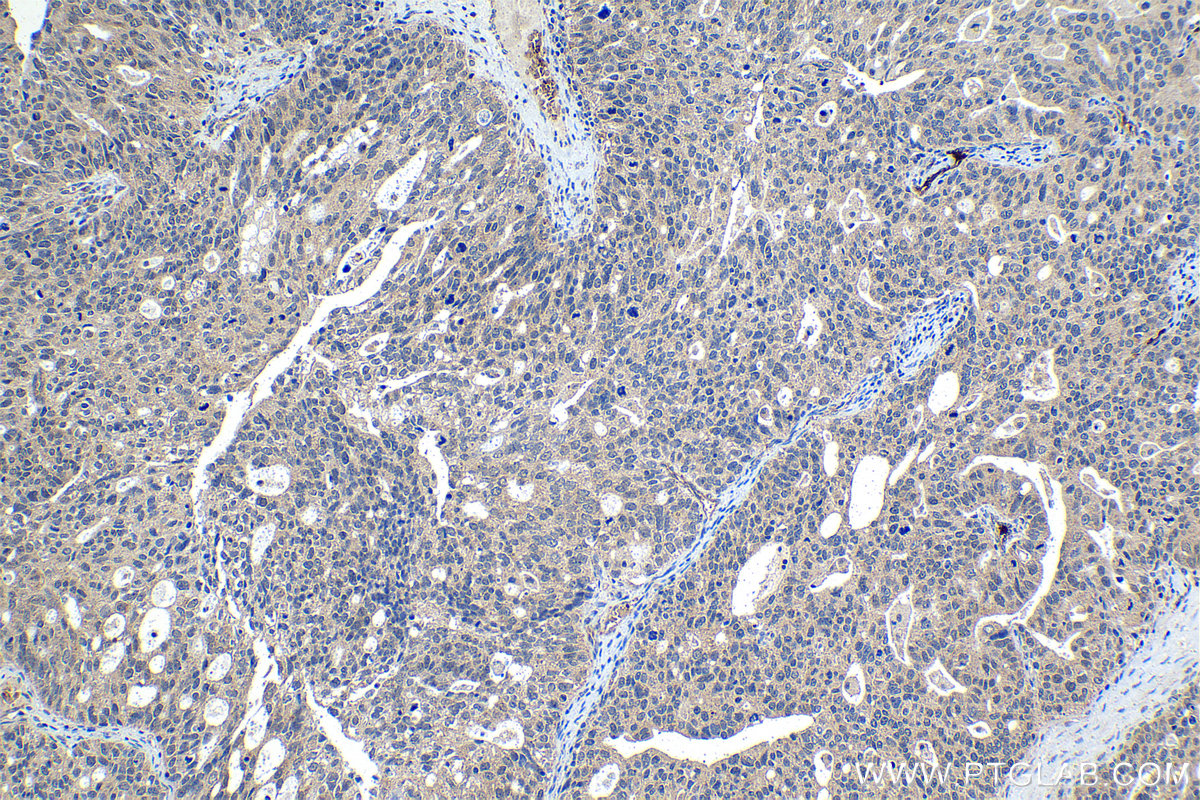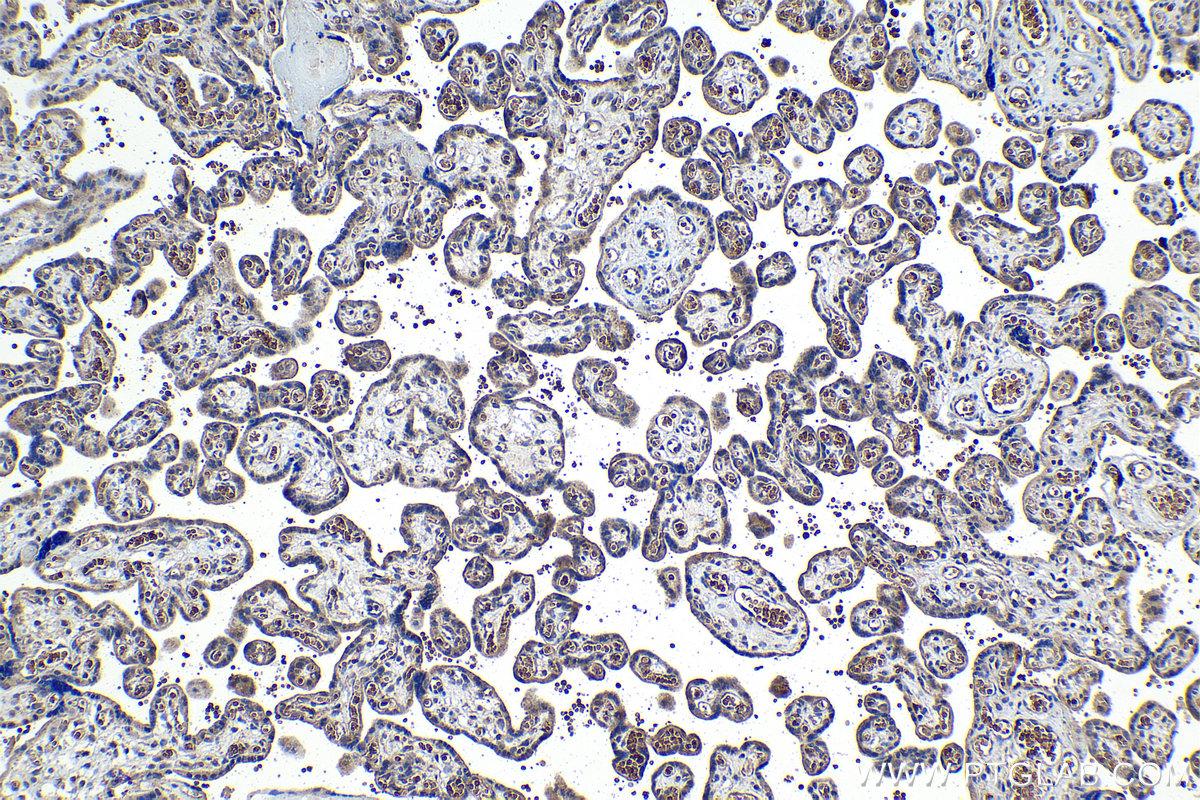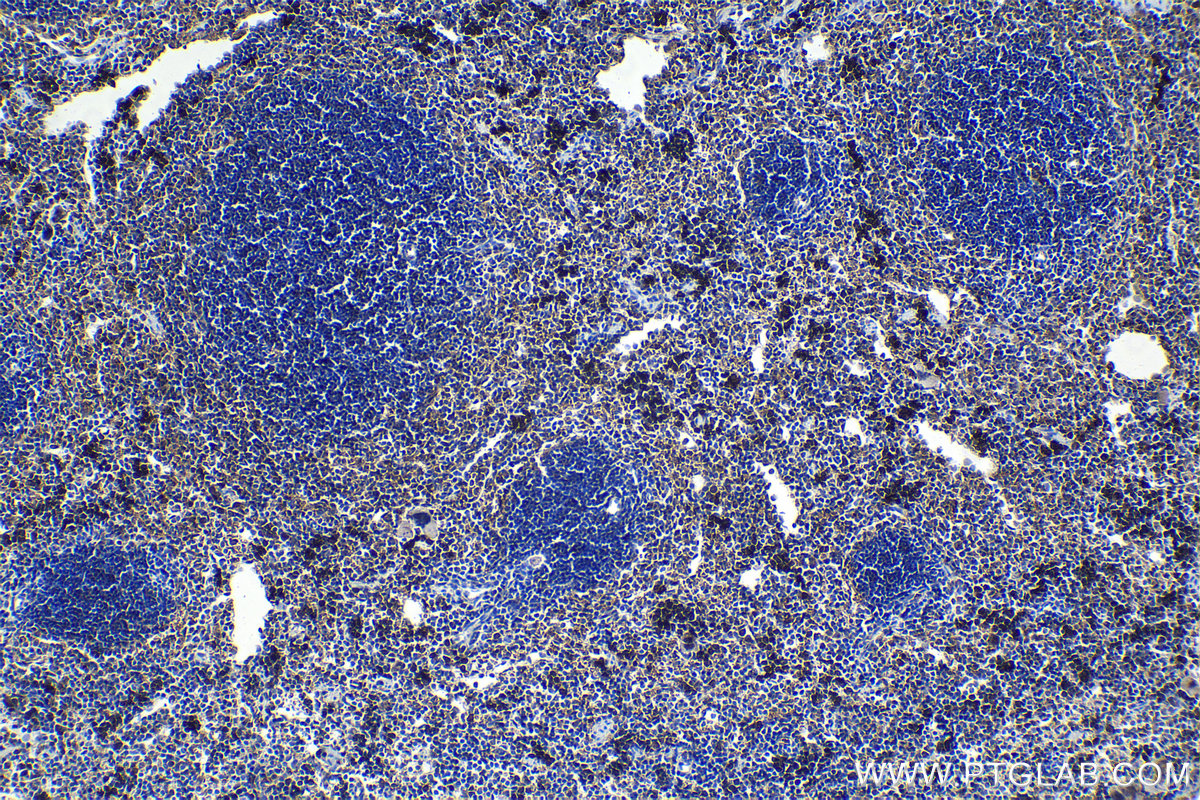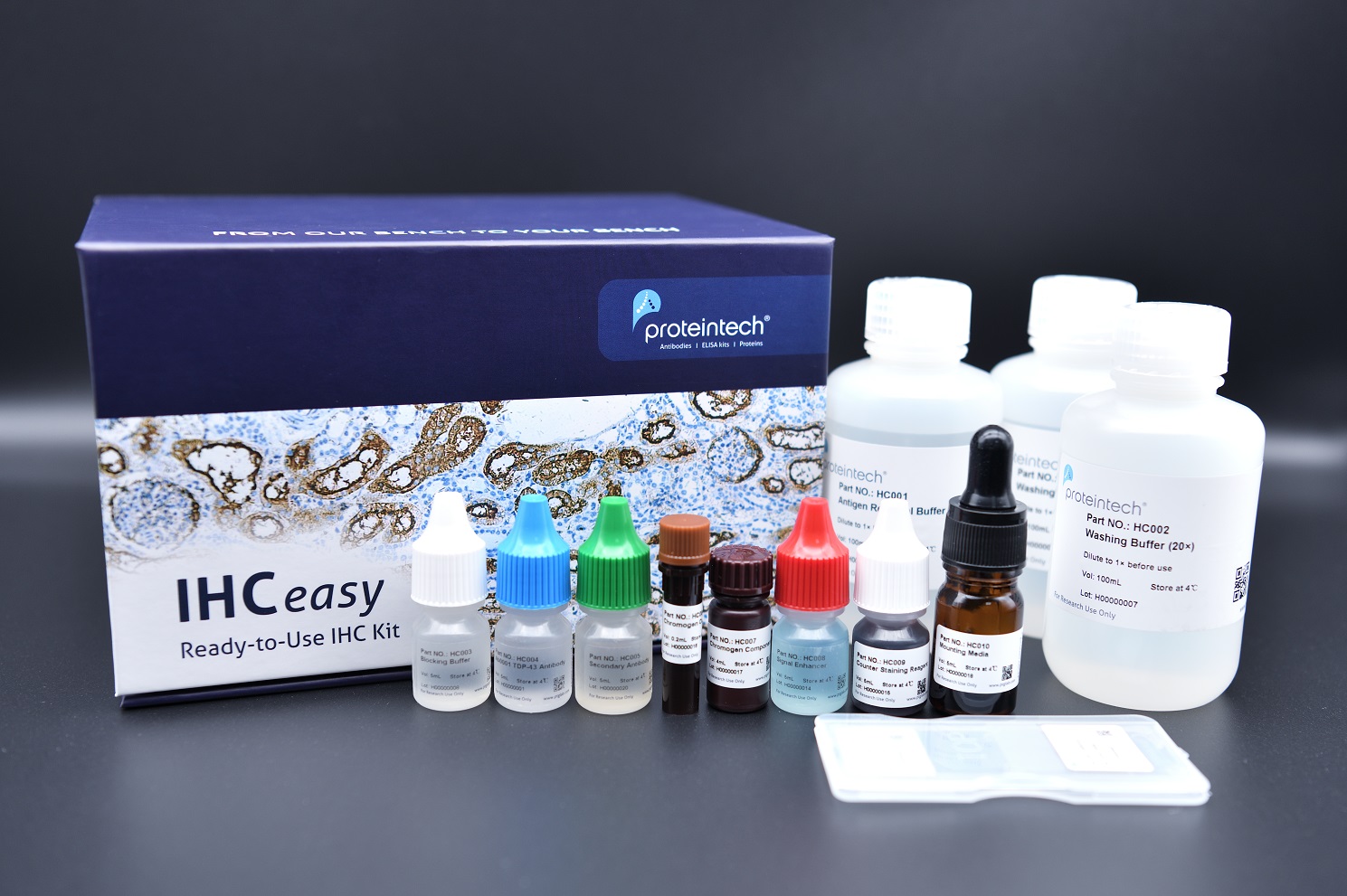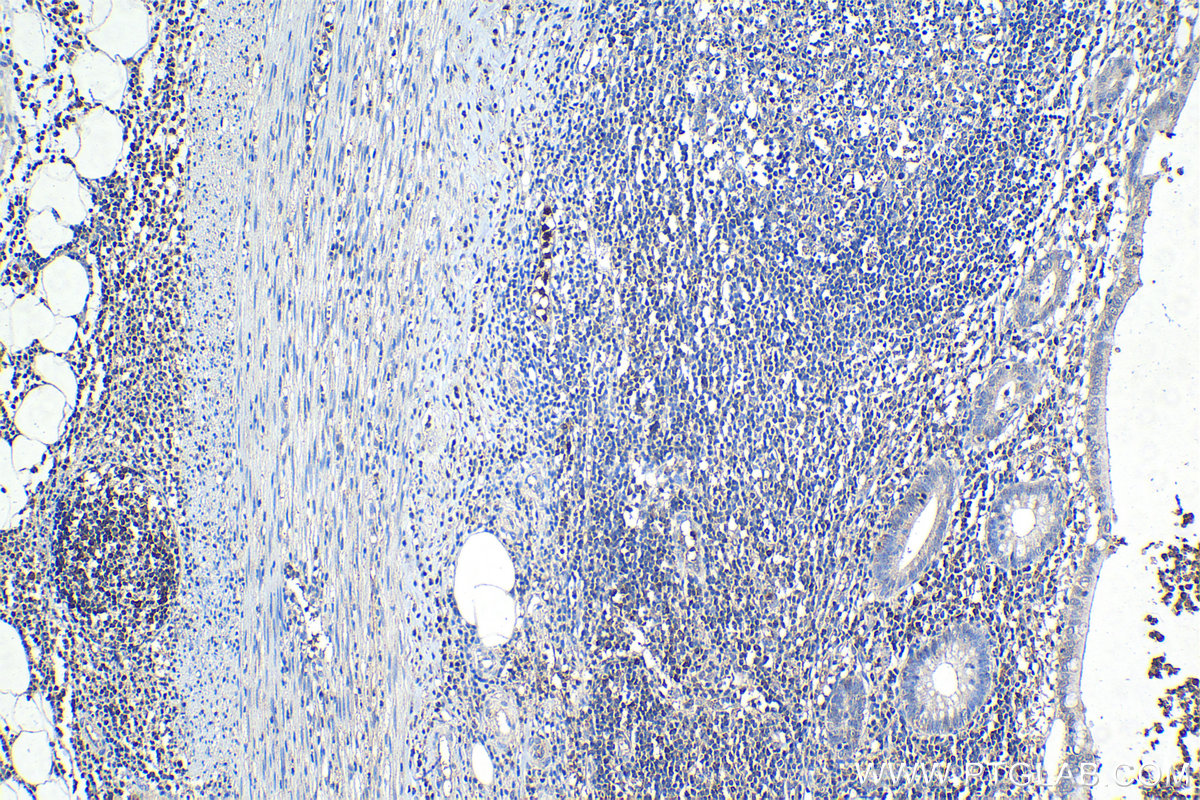IHCeasy cIAP2/BIRC3 Ready-To-Use IHC Kit
cIAP2/BIRC3 Ready-to-use reagent kit for IHC.
Reactivity
Human, Mouse
Sample Type
FFPE tissue
Cat no : KHC1118
Synonyms
AIP1, API2, Apoptosis inhibitor 2, BIRC3, C IAP2, CIAP2, HAIP1, hIAP 1, HIAP1, IAP 1, IAP homolog C, IAP1, MALT2, MIHC, RING finger protein 49, RNF49
Validation Data Gallery
Product Information
KHC1118 is a ready-to-use IHC kit for staining of cIAP2/BIRC3. The kit provides all reagents, from antigen retrieval to cover slip mounting, that require little to no diluting or handling prior to use. Simply apply the reagents to your sample slide according to the protocol and you're steps away from obtaining high-quality IHC data.
| Product name | IHCeasy cIAP2/BIRC3 Ready-To-Use IHC Kit |
| Sample type | FFPE tissue |
| Assay type | Immunohistochemistry |
| Primary antibody type | Rabbit Polyclonal |
| Secondary antibody type | Polymer-HRP-Goat anti-Rabbit |
| Reactivity | Human, Mouse |
Kit components
| Component | Size | Concentration |
|---|---|---|
| Antigen Retrieval Buffer | 100 mL | 50× |
| Washing Buffer | 100 mL ×2 | 20× |
| Blocking Buffer | 5 mL | RTU |
| Primary Antibody | 5 mL | RTU |
| Secondary Antibody | 5 mL | RTU |
| Chromogen Component A | 0.2 mL | RTU |
| Chromogen Component B | 4 mL | RTU |
| Signal Enhancer | 5 mL | RTU |
| Counter Staining Reagent | 5 mL | RTU |
| Mounting Media | 5 mL | RTU |
| Datasheet | 1 Copy | |
| Manual | 1 Copy |
Background Information
Inhibitor of Apoptosis (cIAP) proteins are key intrinsic regulators of apoptosis induced by a variety of triggers. cIAPs overexpression has been shown to suppress apoptosis induced by a variety of stimuli. cIAP2 encodes a 60 kDa protein, originally identified as a molecule recruited to the TNFR complex, and expressed in many different cells and tissues.
Properties
| Storage Instructions | All the reagents are stored at 2-8°C. The kit is stable for 6 months from the date of receipt. |
| Synonyms | AIP1, API2, Apoptosis inhibitor 2, BIRC3, C IAP2, CIAP2, HAIP1, hIAP 1, HIAP1, IAP 1, IAP homolog C, IAP1, MALT2, MIHC, RING finger protein 49, RNF49 |
